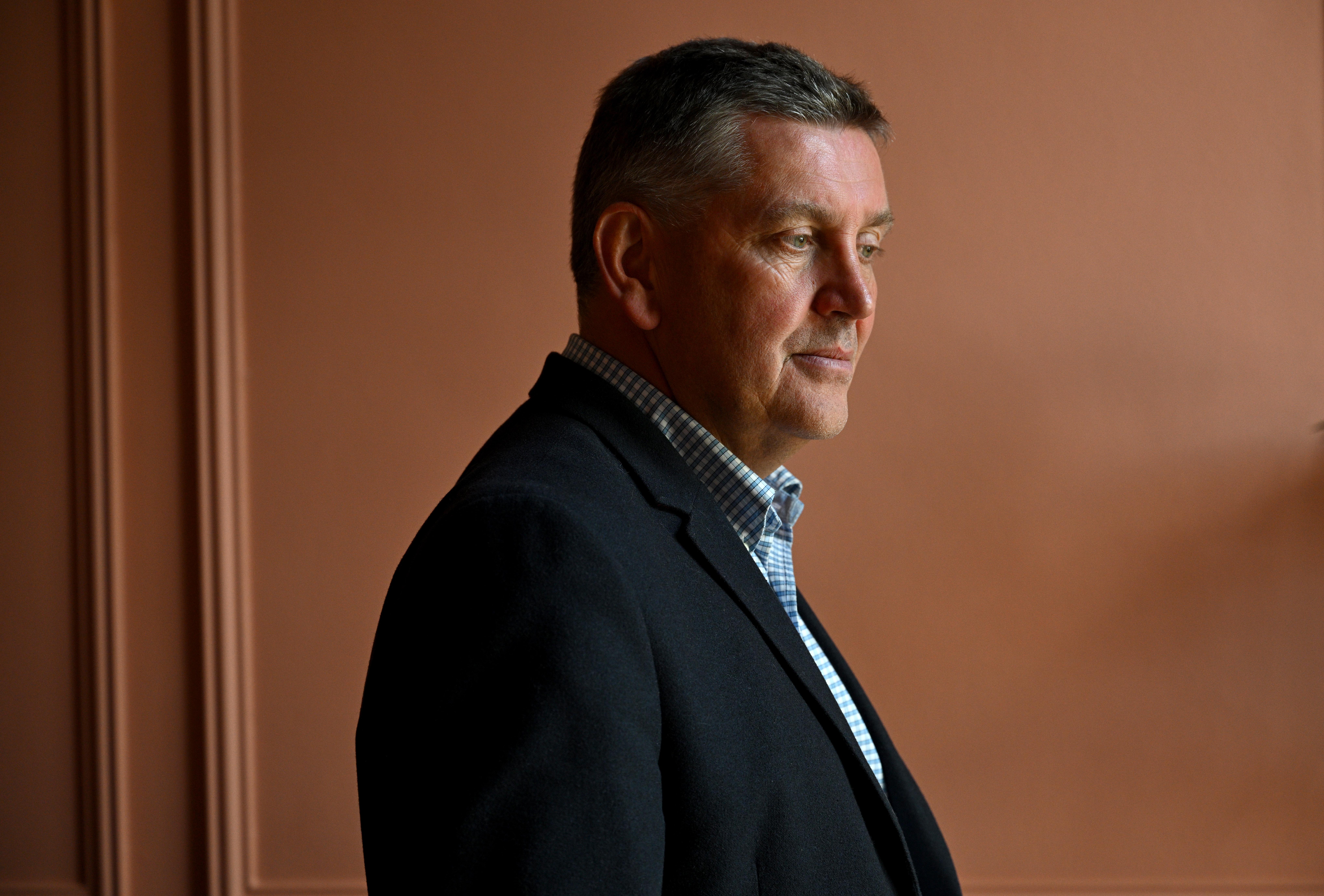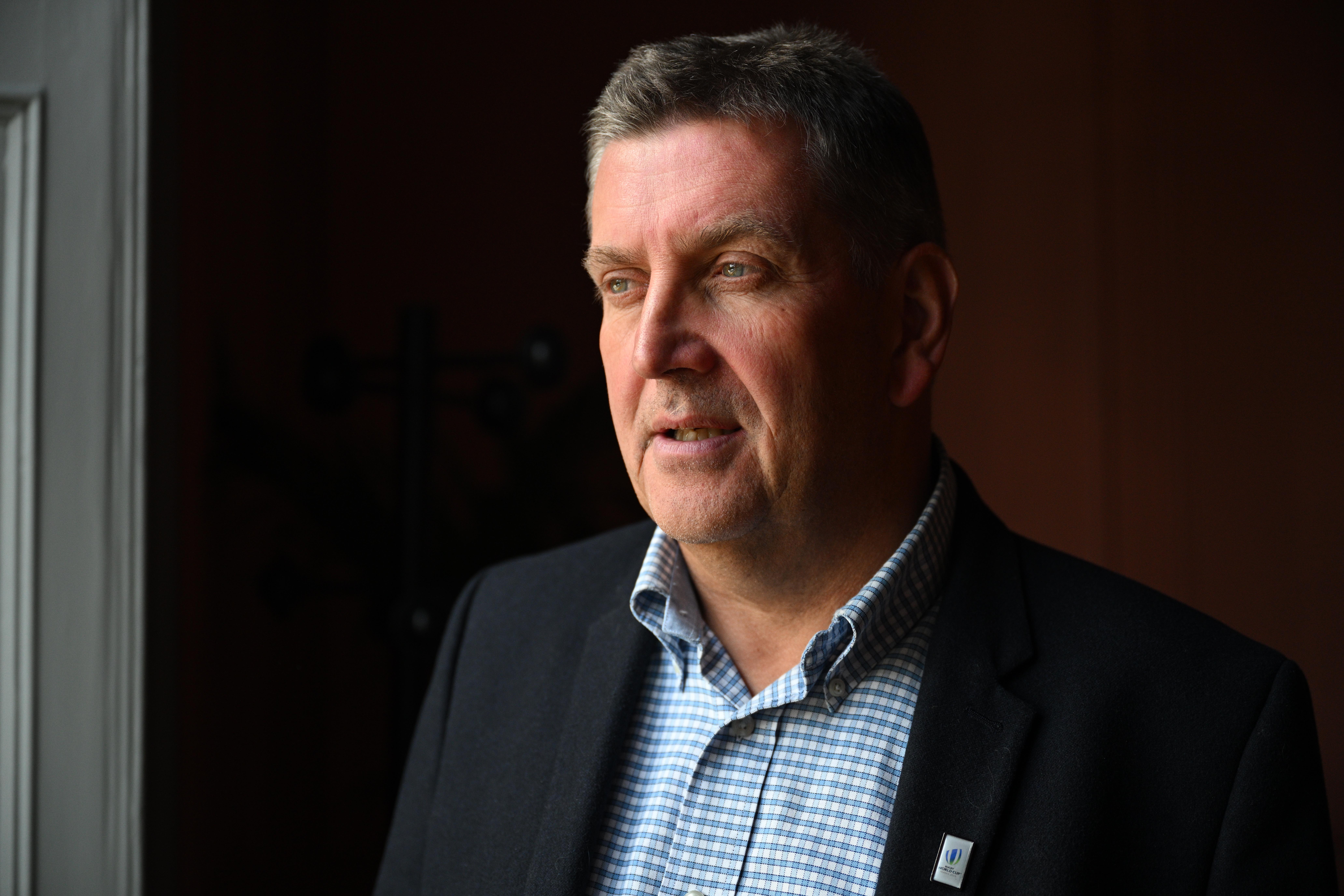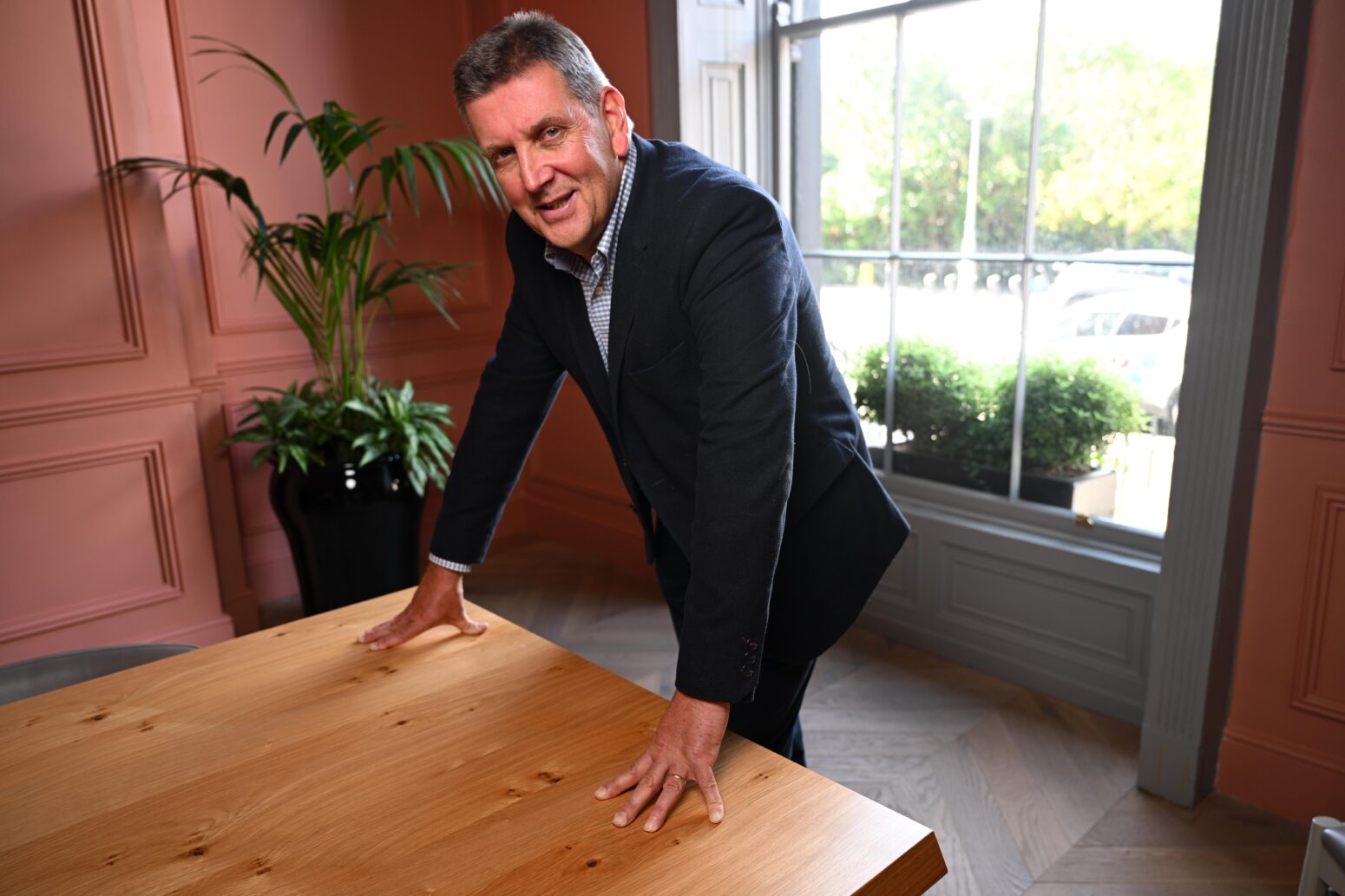Sometimes, a lot can turn on little things. Just ask Robert Brophy.
In 1996, Brophy was visiting his parents for lunch.
A qualified accountant, he had trained with KPMG, before moving into industry as a finance manager for what is now Diageo. He had always had a keen interest in rugby; his uncle Niall played for both Ireland and the British & Irish Lions, while he played competitively with Blackrock.
While reading The Daily Telegraph at home, Brophy spotted a small advertisement in the recruitment pages for a finance manager position with the International Rugby Football Board. The job was based in Bristol, but Brophy applied anyway.
Over the next six months, he was greeted with radio silence. Brophy gave it little thought until a letter finally arrived in the post, advising that the body was relocating its headquarters to Dublin and enquiring if he was still interested in the position.
“My father always bought The Telegraph. Don’t ask me why,” Brophy said. “That’s how it started.”
So began a 27-year journey that would lead to Brophy becoming a hugely influential figure in the world of professional and amateur rugby, helping expand the game internationally and increase its global footprint.
During Brophy’s time at what subsequently became World Rugby, he oversaw the financial development of both men’s and women’s rugby, as well as the sevens format. He was a leading figure in cutting commercial deals and growing the Rugby World Cup into one of the largest sporting tournaments in the world.
For a period in 2012, he acted as interim CEO of the organisation, before moving back to CFO, albeit overseeing an enhanced and more wide-ranging role than just finance. When he started, the organisation had less than ten full-time employees. When he departed 27 years on, it had 300 people on the payroll across the world.
Earlier this year, he stepped down to begin a new chapter in his career as a Lead Adviser for Sports, Media & Leisure with Interpath Advisory, the fast-growing financial restructuring and corporate advisory firm that set up an Irish division last year.
While he will primarily advise CFOs in his own area of expertise – media, and sports – he will also work with the group’s advisory function internationally.
“Having been through the role of CFO for more than 20 years encompassing heading up the World Cup team, and then separately acting as CEO for a year, I’d probably done everything I could, and it was an opportunity, before it was too late, to do something different,” Brophy said.
“And why Interpath? I think Interpath offers a compelling proposition; they’re a new organisation with very like-minded senior professionals in their field bringing a huge amount of experience to the table. So it is almost like a start-up with lots of experience. It is almost counterintuitive, but that’s what it is.”
Brophy said he was also drawn to the entrepreneurial nature of the business, and the fact that, unlike many of its competitors, it does not have an audit function, meaning conflicts are much less likely.
“They are very ambitious with their outlook.
“I know that Interpath are in advanced discussions to grow the business globally and increase its international reach,” he said.
And as someone who has worked at the top table of global sport for more than a quarter of a century, Interpath clearly believes Brophy will help them do just that.
******

The 2023 installment of the Rugby World Cup is well underway in France, but for the first time since he joined World Rugby, Brophy will not be at the coalface of it.
However, he is still on top of the financials, quickly reeling off a host of statistics and data points to highlight the growth in the tournament since its inaugural event back in 1987.
Back then, he said the tournament had gross revenues of just €4 million. In Japan four years ago, it was around €550 million. This time around, it will breach the €700 million mark.
“It is an exponential growth story,” he said, adding that the Rugby World Cup is considered the third biggest global sporting event now after the Olympics and FIFA the World Cup.
“The surplus is probably going to be in and around €150 million, depending on how you measure a number of things such as cost allocations. And all of that, 100 per cent, is reinvested back in the game in terms of grants for unions, grants for regions, other activities, medical grants, and so on. It is a sizable amount but a sizeable amount is needed to support the infrastructure and commitments of World Rugby in its various guises,” he said.
Brophy says that revenues for the event come between ticketing and commercial, with the latter including media rights, licensing, and sponsorship.
“Under the current business model, the hosts have effectively bought the licence to sell tickets, hospitality, travel packages, and some sponsorships. They must meet all of the costs which include bringing and hosting the teams in France; venues including local training grounds and stadium dressing; security; transport; match officials and professional fees including insurance,” he said.
The importance of the tournament to rugby cannot be overstated, with the Rugby World Cup generating about 85 per cent of total revenues for World Rugby, money that is then reinvested over the following four-year cycle.
“The biggest increase in investment funding has been the women’s game over the past 4 years and that will continue at a higher rate for the next cycle – it would be seen as the biggest growth opportunity at present,” he said.
Developing the women’s game
The promotion and the development of the women’s game was one of the highlights of Brophy’s time in World Rugby HQ.
More than a quarter of the overall playing population is now female, and there has been a 28 per cent increase in registered players since 2017, according to data from World Rugby. In addition, a third of representatives on the World Rugby Council are now female.
“There are a lot of exciting opportunities for women’s rugby,” he said, pointing to the recent launch of WXV, a new three-tier annual global women’s international 15s competition.
“That’s one big example. You’ve got the next Women’s World Cup taking place in England in 2025 – undoubtedly the biggest market for women’s sport and women’s rugby. That’s going to give a significant boost to the game. Of all the areas that World Rugby is currently investing in, women’s rugby is by far and away the one receiving the highest increase in investment, and the Unions are recognising that opportunity as well.
“I think the Women’s Soccer World Cup was a huge success in Australia and New Zealand. It’s going to be hard to replicate that because the gap between some of the teams is significant at this point. But this will improve with investment.”
Likewise, he is enthused by the growth of the sevens game, for both men and women, a growth aided by the inclusion of the format at the Olympics.
“It’s terrifically exciting, the viewing figures and the attendance numbers are strong,” he said.
He also said the format would help bring the game into countries that were not traditional rugby strongholds, pointing to the fact that Kenya beat South Africa to secure a spot in the next Olympics.
Private equity and club casualties
The arrival of CVC Capital, the Luxembourg-based private equity fund, into rugby has been a major development within the game in recent years. CVC part-owns the Six Nations, and the English Premiership.
Meanwhile, last year, US private equity firm Silver Lake took a US$134 million stake in the famed All Blacks after agreeing a deal with the governing body of rugby in New Zealand.
As Sean has written previously, the basic private equity strategy is to buy things, fix them up, and then sell within five to ten years and CVC could well look to sell out sometime between 2025 and 2030.
Whether that happens remains unclear, but Brophy sees the positives of the arrival of private equity players into the sport.
“When I started, the idea of private equity in any part of rugby would have been incredibly resisted by the conservative outlook,” he said. “ So what’s driving it? I think people realise that private equity or some form of private investment may be a necessary component for the growth of the sport
“Has it worked? I think it is too early to say – CVC entered in 2018 and we have had Covid in between. Undoubtedly private equity brings more independence at board level, and will help improve decision-making. It brings obvious investment in the sport, and it brings a certain amount of know-how as well.
“CVC had a phenomenally successful investment in Formula One where they grew the revenues dramatically, and that’s down to building incrementally the broadcast revenues – that leads to enhanced sponsorship revenues as well, and they made a big success of that.
“Formula One is not the same as rugby. I think rugby is a little bit more challenging to achieve those significantly increased returns. I think the jury is out, but I certainly would say that private equity provides an opportunity for growth.”

The professionalism of rugby has not all been plain sailing, however. There has been a worrying rise in head injuries and concussions, something Brophy said that the governing bodies are attempting to deal with through rule changes and protocols.
In addition, while the provincial structure works in Ireland with four centrally controlled professional teams, the game is struggling financially in Scotland and Wales, while a number of major English clubs including Wasps and London Irish have collapsed.
“I think the Irish model is the best model that there is in World Rugby. You know how much you’re spending on salaries in particular due to the central contracting model,” he said.
“The biggest cause of clubs getting into financial difficulty is excessive payments to players married with under delivery on the revenue side; over-optimistic revenue forecasts and paying players too much – it’s as simple as that.
“The other big factor here is undoubtedly player injury; people forget this – when a player gets injured, you’ve got to continue to pay that player, but you have got to hire somebody else, or you’ve got to have somebody else in your squad. And squad sizes have grown significantly over the last 20 years.”
He added: “So all of those factors are making the cost of participation far higher for the clubs that are out there, but also England and France have a decentralised model – the clubs manage their own financial affairs, they comply with the rules that are set out in the agreements that are there between the English Rugby Union and the clubs, and the French Federation and their clubs. But ultimately they’re responsible for their own financial affairs. And that’s the challenge.”
As he swaps a career in World Rugby for a new challenge in Interpath, Robert Brophy is still hoping to see two things in the world of rugby: Ireland winning the World Cup and Ireland hosting the tournament. I ask if either is possible. “Anything is possible,” he said, smiling.
*****

The Currency’s coverage of the Rugby World Cup is sponsored by Interpath Advisory.
Interpath Advisory supports businesses, their investors, and stakeholders with critical financial advisory and restructuring services. Enhanced by technology, Interpath’s purpose is to create, defend, preserve, sustain, and grow value. Interpath in Ireland operates across 3 offices in Dublin, Cork, and Belfast.


